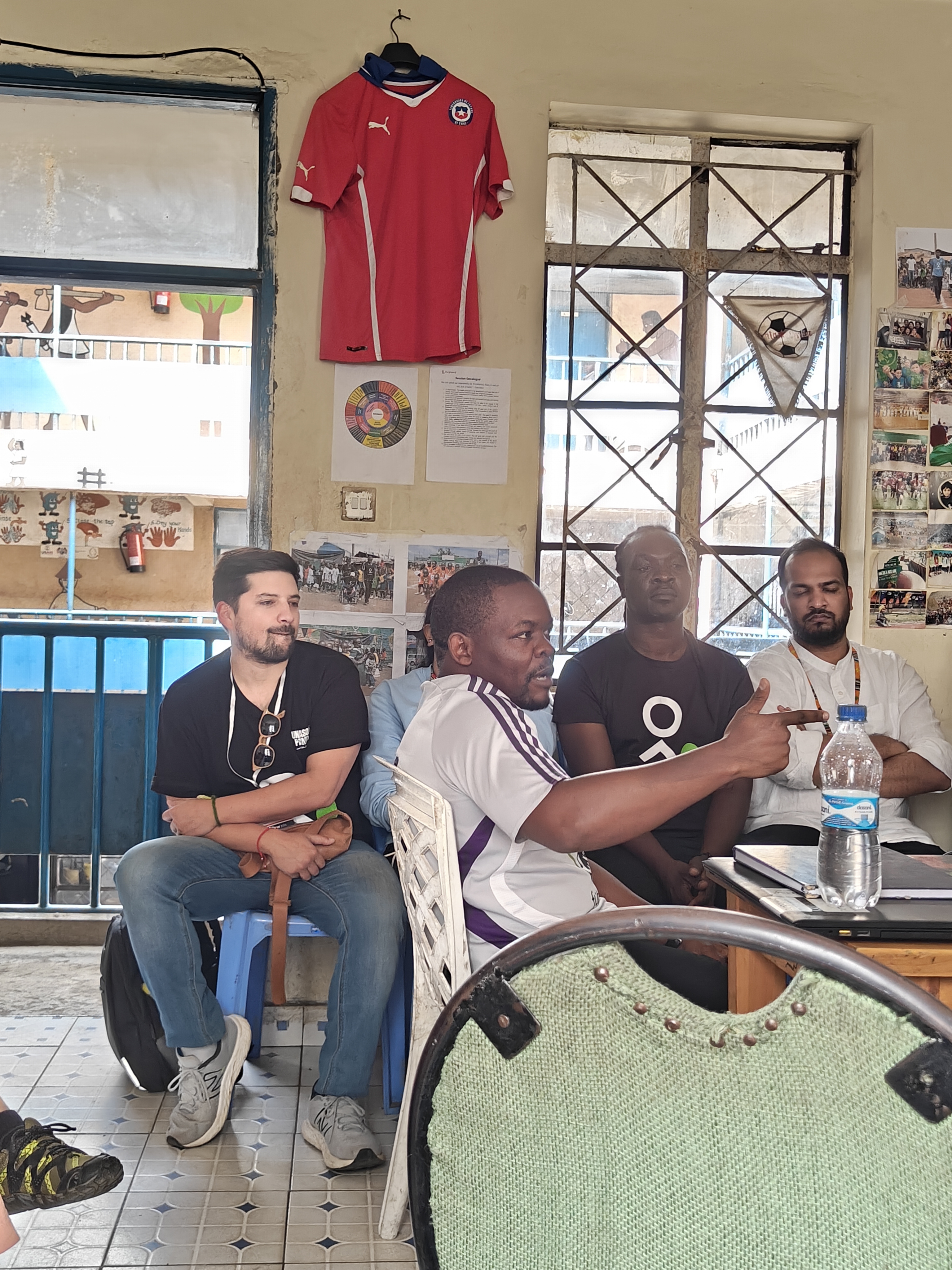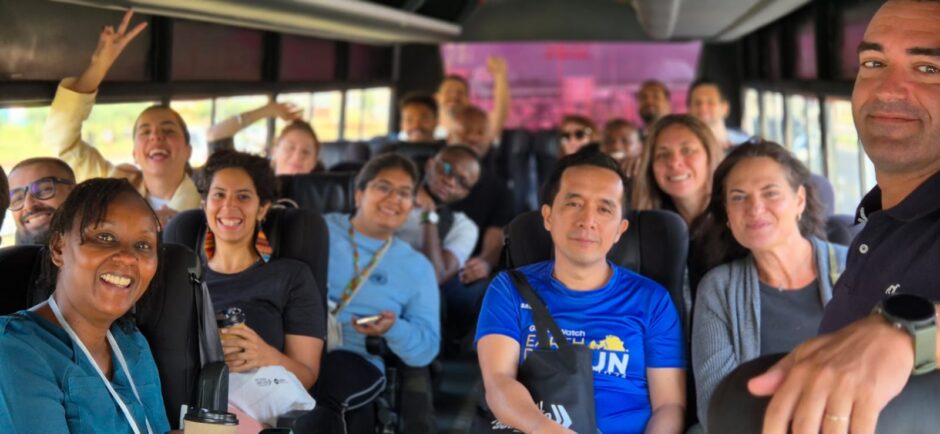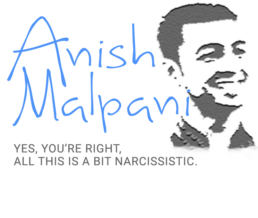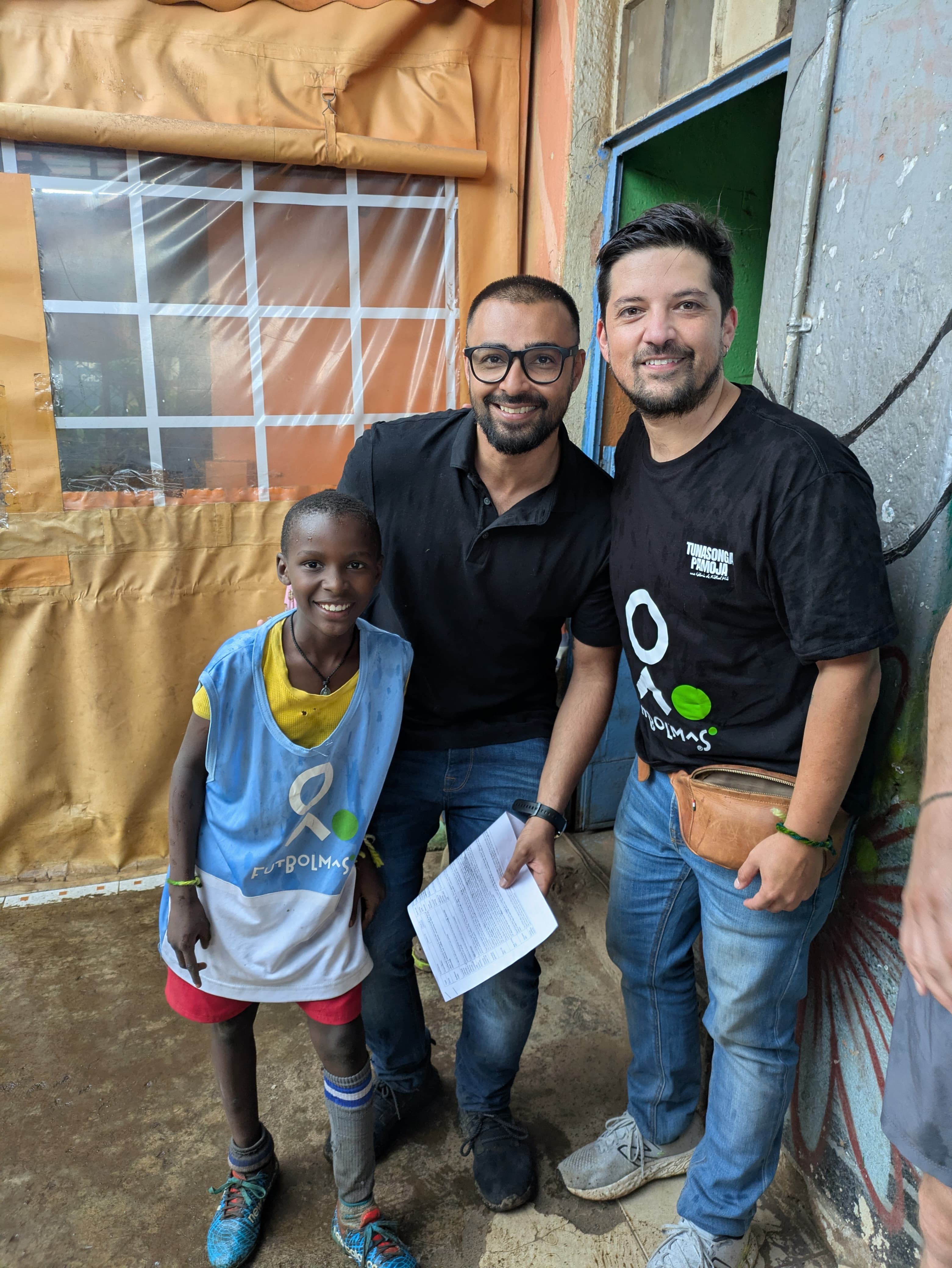Football, Scaling Depth & Stress
“We use football to heal minds in urban slums,” said Victor, as we squeezed into the back of a bus in Nairobi.
I was back in Kenya after half a decade for a fellowship summit.
Hard work pays off, and sometimes good people recognise it. And some good, hard-working people are brave enough to bring other good, hard-working people together to be better.
That’s The Global Good Fund.
It brought fifteen social entrepreneurs from all over the world together in Nairobi for a week – to reflect and reassess, to reconcile the rancour that even good things sometimes reveal.
And that’s where I met Victor.
Victor and his friends started Futbol Mas sixteen years ago in Chile, believing that football can be more than just fun, that it can heal and build and refine the complex, irritable soul that we’ve been blessed with.
Today, Futbol Mas has its footprint in 14 countries and has deeply impacted over 100,000 children. Large numbers like that generally don’t impress me, because they are usually vanity metrics, making the intervention sound way more impactful than it actually is.
But, there was one stat that Victor shared that floored me – each child ends up getting about a hundred hours of training.
“We build these centres in different countries from the ground up, giving local leaders the autonomy to adapt the solution to local contexts,” continued Victor.
The sceptical side of me rolled his eyes and thought, easy to say, hard to do.
And then we visited the Futbol Mas Centre in Nairobi.
It was in Mathare, one of the toughest slums in Kenya, often overlooked in the shadow of the other big Kenyan slum, Kibera.
Us fifteen fellows from all over the world got off a fancy bus in the middle of this slum looking like fat pimples that attract all eyes all the time.
We walked into a room where the local Futbol Mas team presented their work to us. Victor, the co-founder, was in the room with us, but he sat on the side.
The Kenyan team talked about their work with pride, fielding questions, showing data on what was working and what wasn’t, and on how they had grown over the years to become a force for change in the hearts and minds of the most vulnerable children through my favourite sport.
Not once was Victor acknowledged.
Not once did Victor say anything.
Right at the end, the Kenyan Team Lead pulled out a photo and showed it to all of us. It was a photo from five years ago. A photo of him greeting Victor at the airport when he first visited Kenya to start Futbol Mas here.
And I wept.
They’ve always said “scaling deep impact” is hard, if not impossible.
And I’ve fought that notion, trying to brainwash myself that hard as it might be, it’s probably the only way to make permanent change, and nothing’s going to stop me from trying to do that.
But I was doing this with little proof.
Maybe I didn’t look hard enough, but when I saw what Victor and his friends had built, it gave me hope.
It gave me hope that deep impact can be scaled. It can be scaled de-centrally and globally, truly empowering local communities in a way that lights a fire to the notion that “empowerment” is a buzzword.
I cried because Victor was not the hero of the Kenyan Futbol Mas story; he was just the person who dropped the right pebble into the ocean. And in that, he had made his purpose bigger than himself. That’s the hardest stuff.
Dropping a pebble is hard because the pebble can’t be too small or too large. If it’s too small, the ripples die a quick death. If it’s too large, it overpowers the essence of why it was dropped.
Because in the end, it’s not the pebble that solves problems permanently, it’s the ripples it creates that do the magic.
Or at least that’s the fairy tale I believe.
*****
This little story might sound perfect, but it’s not.
Victor recently stepped down as the CEO of Futbol Mas. He said that he was going through a renaissance of his own, battling hallucinations plaguing his personal “life” which was so closely intertwined with his “work”.
Sixteen years can take a toll, but the fire within him isn’t extinguished and I know that, it’s just taking on a different shape.
I listened to him, half in a trance, half in my head, wondering if “work” and “life” are two separate things or not.
Lately, I have been thinking a lot about stress.
A certain kind of stress doesn’t scare me, it weirdly invigorates me.
I’ve chosen a stressful “job” that will necessarily generate stressors that need to be addressed. In these cases, stress is an excellent data point.
But then, there are unnecessary stressors that pop by occasionally.
Like a good friend you generally have a good time with, but these days, that friend just leaves you drained, and even more stressed out about things that don’t really matter.
Or like partying too hard, late into the night, having more to drink than you should, ruining your sleep cycle, and leaving you mentally challenged the next day.
Or like those folks that constantly seem to attract drama, leaving you wondering who the constant in all that is, and whether you’re a variable that’s about to get sucked into the vortex so you better run.
I’m realising that purging unnecessary stressors can be a superpower.
But it’s not easy.
Here’s to finding our necessary stressors.
*****
P.S. Gen AI was not used to write this, not even to “correct” it.



